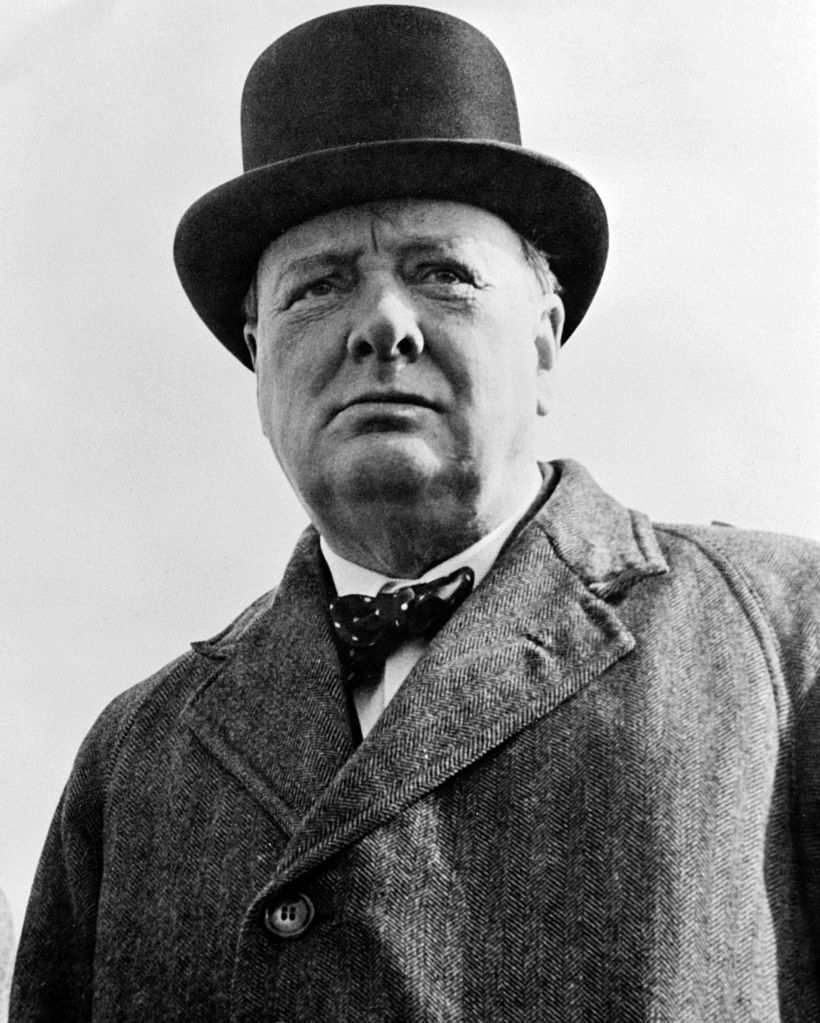By Thomas Colley

An article in yesterday’s Sunday Times set out British Prime Minister David Cameron’s plan to ‘bomb ISIS in a fortnight’.[1] The article, as is so common in today’s age of spin, premediates what Cameron is likely to say in the hope of controlling the debate on extending airstrikes into Syria before it formally begins; that MP’s should ‘start behaving like Churchill, not Chamberlain’. Leaving aside the frustration many feel with being told what a politician is going to say rather than evaluating what they actually say (and do), a greater concern is that the government’s rhetoric potentially belies major flaws in its strategic thinking.
The major strategic concern is, once more, the tired allusion to the Munich analogy to impel MP’s to support extending airstrikes into Syria. As seems to be the case in almost any foreign policy situation, it seems that policymakers think that the only rhetorical device available to them during a debate on military action the comparison with Hitler in 1938. The choice to be offered to Britain’s parliamentarians is essentially to be associated with Britain’s most heroic leader or its most apparently naïve. Simplistic and readily understandable as the comparison is, it grossly underestimates the complexity of the strategic situation in the Middle East at present. Extolling the need to act like Churchill not Chamberlain says little more than ‘it is time for decisive action or the enemy will get stronger’. If this is the level of the British government’s strategic thinking, then British citizens should be extremely concerned. If not, then it is merely the crudest propaganda that grossly underestimates the British public’s (and hopefully their ministers’) understanding of the nuances of contemporary military interventions.
In rhetorical terms, the ‘Churchill not Chamberlain’ analogy is likely to be effective; it presents the illusion of choice, but in fact it is no choice at all. Just as US President Bush insisted on countries having to choose between being with or against America following 9/11, it constrains actors into taking only one option. It removes grey areas and complexity and looks to rhetorically trap politicians into only one realistic choice, if they would like their credibility to be intact. Predictably, at a time when politicians are routinely lambasted for lacking the statesmanlike qualities of their predecessors, being associated with Churchill is evidently preferable given that the only alternative is to be associated with pacifism and naïve inactivity. It can be left to others to debate whether the real alliterative comparison is actually between Churchill and Corbyn.
The apparently timeless lesson Munich provides of not appeasing tyrants is actually a terrible guide to strategy. As Europe’s analogy of choice when Putin annexed Crimea, it said as little about the actual strategic situation there as it does about the fight against ISIS today. This matters because Britain and the West’s strategy against ISIL is currently flawed, and attention to its actual flaws would be far more useful in working out the best step forward. As will be shown, the strategic basis of the comparison is so thin that in fact it would be rather depressing if the level of strategic thinking by policymakers does not go beyond the Munich analogy. With the important Strategic Defence and Security Review upon us, it would be good to see sound strategic thinking elevated above rudimentary rhetoric.
The first flaw is that apart from being demonstrably barbaric, the enemy was markedly different. Hitler, with the benefit of post-Munich hindsight, represented an existential threat to the British state; ISIL does not. ISIL can of course inflict significant damage through terrorism as it is increasingly showing. But to compare the decision to extending limited airstrikes against the organisation - an asymmetric foe - is nothing like failing to foresee an existential total war with a conventional military foe intent on dominating Europe. The costs of failure to act against an ‘existential foe’ are, quite obviously, existential. It is less clear, for example, whether extended airstrikes will result in more British casualties from domestic terrorism or less.
The second and perhaps more understandable flaw is the continuation of thinking of ISIL in terms of the sovereign states in which it holds territory. On the ground, differentiating between ISIL in Iraq and Syria makes little sense; it controls a shifting territory within those states, including the border between them. If it is to be attacked, the group’s territory, not the old lines on the map, should be what matters. As Britain’s thousands of armchair strategists are doubtless aware, if you only attack the group in one territory, and they know that, they can simply position much of what they want to protect into the other. If one insists that a tenuous, laboured World War Two analogy must be made, then the equivalent would be attacking Hitler’s forces only when they were outside German territory, but never when they are inside, and miraculously expect them to be defeated. Airpower alone will not come close to destroying ISIL, but limiting airpower to only part of its territory has always been operationally flawed.
The most disappointing aspect of the Churchill-Chamberlain analogy is that it typifies a longstanding feature of debates on British defence policy: the simplification of Britain’s options into a crude binary between military action and benign inactivity.[2] Rather than a genuine debate about Britain’s strategic ends, ways and means, the debate is reduced to the choice between interventionism or isolationism, heroism or pacifism, leadership or irrelevance, security or insecurity. The complexity of conflict in the Middle East requires far more nuanced and flexible thinking. Furthermore, it is not clear whether the government is looking to act more out of conviction in the efficacy of its strategy or merely the desire to avoid the loss of credibility that would result from Russia and France proceeding without it. As a source in the Times article suggests, it would be ‘embarrassing’ if Britain could not play its role as a reliable ally. But surely what is truly embarrassing is the idea that embarrassment might drive strategy.[3]
To conclude, the British government is poised to call for a vote on furthering an existing military intervention into an immensely complex conflict, while setting out a Strategic Defence and Security Review that is a vital element of British strategy in the coming years. If it should be drawing any lessons from history (and it should do cautiously), it should be to focus on the intricacies of an individual conflict rather than vague notions of ‘credibility’, ‘influence’ and ‘status’. It should also stop trying to persuade people by telling them they are facing Hitler again. The British public understand war reasonably well, having witnessed their military participate in so many different conflicts in recent decades. They also currently appear to reluctantly recognise the need to destroy ISIL, but have learnt that a clear, detailed political plan is needed to prevent further problems in the long run. Reducing the level of strategic debate to Churchill versus Chamberlain is woefully inadequate and will do little to resolve a complex strategic situation or generate public support. Let us hope that the government’s actual strategy is more convincing than what they tell us it is going to be.
Thomas Colley is a doctoral candidate in War Studies at King’s College London. A former senior editor of Strife’s blog and journal, his research specialises in propaganda, strategic communication and British public attitudes to war and conflict. You can follow him on Twitter @ThomasColley
[1] Tim Shipman, “PM’s push to bomb Isis ‘in fortnight’”,
http://www.thesundaytimes.co.uk/sto/news/uk_news/National/Terrorism/article1636187.ece, 22 November 2015.
[2] Ritchie, Nick. “Trident and British Identity: Letting Go of Nuclear Weapons.” Bradford Disarmament Research Centre, September 2008.
[3] Tim Shipman, “PM’s push to bomb Isis ‘in fortnight’”.



